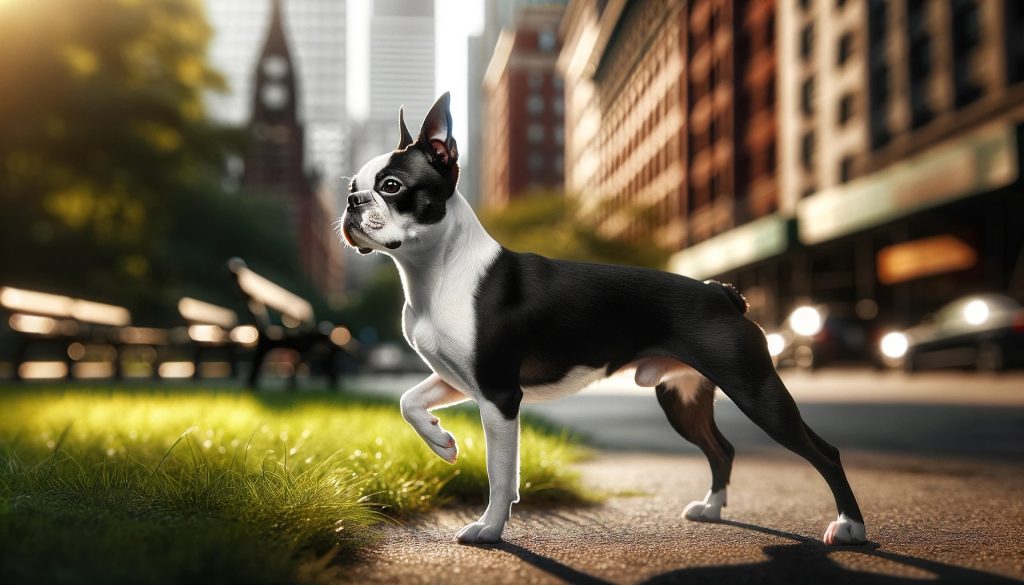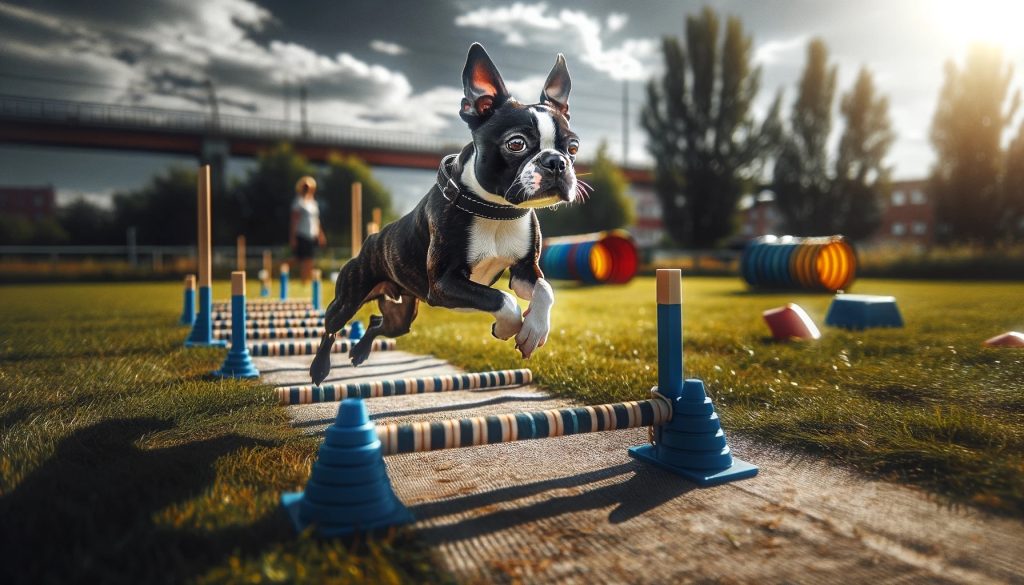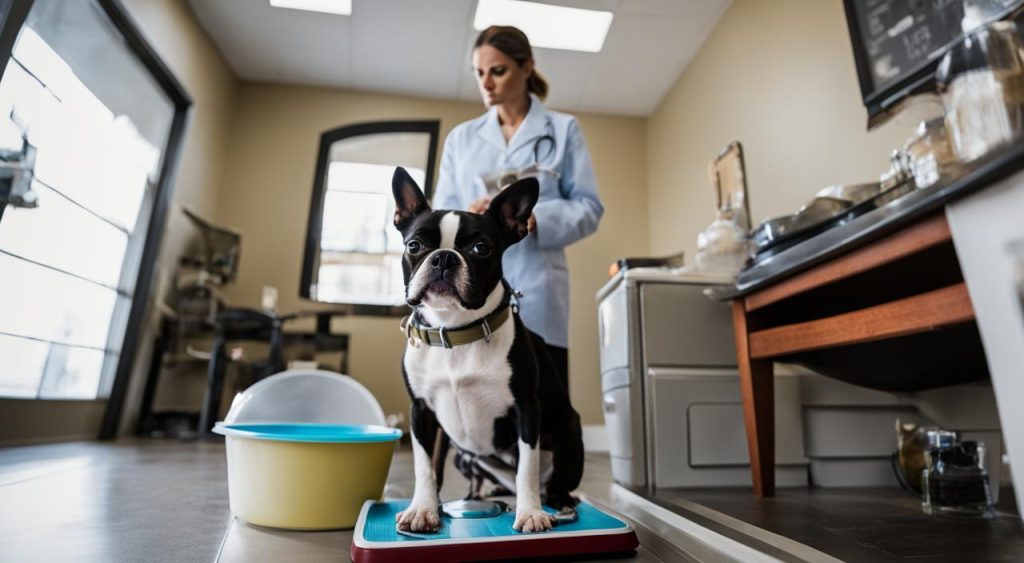Boston Terriers, known for their loyal and affectionate nature, are often admired for their protective instincts. While they may not have the intimidating size or appearance of traditional guard dog breeds, they possess certain characteristics that make them reliable guardians for their families. Their keen senses and strong bond with their owners enable them to be alert and responsive, making them excellent watchdogs.
Boston Terriers are known for their protective behavior, using their vocalizations to serve as a deterrent to potential intruders. Their natural alertness and responsiveness, coupled with their loyalty, make them perfect companions for family protection.
It is important to note that Boston Terriers are not typically aggressive dogs. Instead of engaging in direct confrontation, they rely on their senses and alerting behaviors to warn their owners. Training and socialization play key roles in harnessing their protective nature and maximizing their potential as guard dogs.
Key Takeaways:
- Boston Terriers possess protective instincts and are excellent watchdogs.
- They use their vocalizations to serve as a deterrent to potential intruders.
- Boston Terriers rely on their senses and alerting behaviors to warn their owners.
- Training and socialization are important in maximizing their potential as guard dogs.
- Boston Terriers are not typically aggressive and prioritize their senses over physical confrontation.
The History and Temperament of Boston Terriers
Boston Terriers, also known as the “American Gentleman,” have a fascinating history that traces back to the late 19th century. Originally bred for purposes such as ratting and fighting, they were a result of crossing the now-extinct White English Terrier with the English Bulldog. Over time, they were selectively bred to become more gentle, companionable, and suited to family life.
The Boston Terrier breed is renowned for its friendly and affectionate nature, making them wonderful companions. They possess a unique temperament characterized by intelligence, loyalty, and a gentle disposition. While they may not have the imposing physical stature of some other guard dog breeds, they excel as attentive watchdogs. Their responsiveness and alertness to their surroundings make them naturally aware of unfamiliar people or sounds.
“Boston Terriers have a natural inclination to bark when something seems amiss, which can serve as an effective deterrent to potential intruders.”
Socialization and training are key to unlocking the full potential of Boston Terriers as watchful and protective companions. By exposing them to different people, situations, and environments, you can help develop their guarding instincts. Obedience training classes can ensure they respond to basic commands and can manage their guarding behaviors effectively.
Although Boston Terriers may not possess the physical attributes typically associated with guard dogs, their loyal nature and responsive disposition make them excellent watchdogs. Their bark alone can be enough to deter intruders and protect their loved ones. When considering a Boston Terrier as a companion and watchdog, their history, temperament, and unique qualities make them a wonderful choice.
Maximizing the Guarding Potential of Boston Terriers
The effectiveness of a Boston Terrier as a guard dog largely depends on their training and socialization. Boston Terriers are intelligent and eager-to-please dogs, making them highly trainable. To maximize their guarding potential, it is important to provide early socialization to expose them to various people, situations, and environments.
Obedience training classes can help ensure they respond to basic commands such as “sit,” “stay,” and “quiet,” which can be vital for managing their guarding behaviors. Guard dog training can further enhance their abilities, such as training them to bark on command or when they detect unusual sounds. Positive reinforcement methods, such as offering treats, praise, and affection, can motivate Boston Terriers and help them become effective guard dogs.
It’s important to note that Boston Terriers have limitations as guard dogs due to their non-aggressive nature and smaller size. Their lack of physical confrontation and potential health issues should be considered when evaluating their suitability as guard dogs. Ultimately, the decision to choose a Boston Terrier as a guard dog should be based on individual lifestyle needs, expectations, and the unique circumstances of the home.





